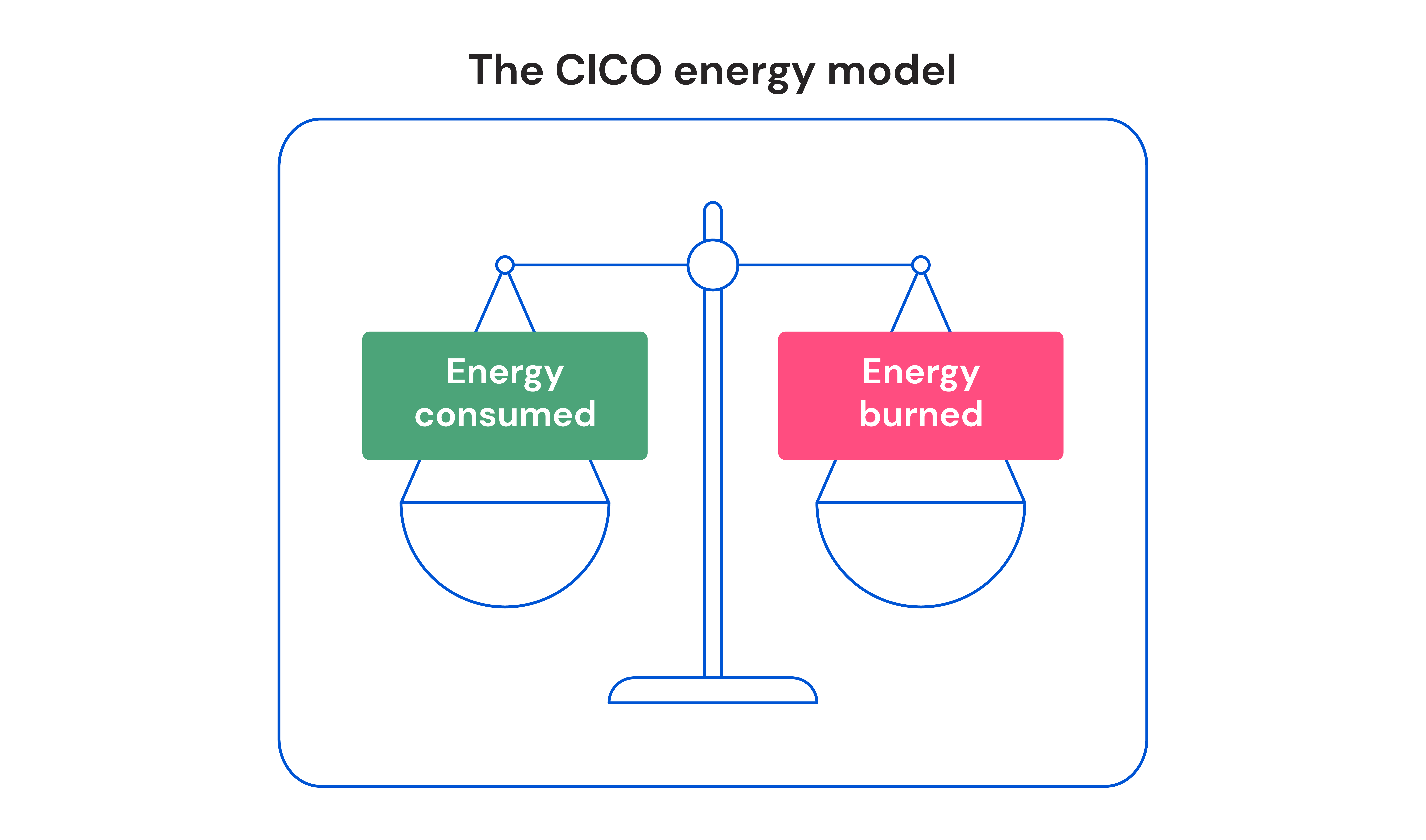To put it simply, Calories are a metric that quantifies energy. They allow you to measure how much chemical energy you consume versus how much you burn daily. In specific, scientific terms, each Calorie on a nutrition label describes the amount of energy required to heat 1 liter of water by 1° Celsius.
Throughout the day, you are constantly consuming energy (Calories) from the foods and beverages you consume. You are simultaneously burning energy (Calories) as your body carries out metabolic processes to keep you alive and moving.
The balance of your daily energy intake and expenditure is, intuitively enough, referred to as energy balance, and this is what largely dictates changes in your body composition.
We burn some amount of energy every single day, and unless we’re doing a pretty extreme fasting protocol, we consume energy (in the form of foods, beverages, and dietary supplements) as well. In simplified terms, energy balance refers to the relative daily balance between energy consumed and energy burned, and in the United States, we tend to discuss energy intake and expenditure in terms of Calories. Elsewhere, kilojoules are used in place of Calories, but the same principles apply.

In simplified terms, energy balance refers to the relative daily balance between energy consumed and energy burned
You ingest your Calories in the form of macronutrients, which include carbohydrate, fat, protein, and alcohol.
A gram of protein provides about 4 Calories
A gram of fat provides about 9 Calories
A gram of carbohydrate provides about 4 Calories
A gram of alcohol provides about 7 Calories
So, you can estimate your daily energy intake by summing the energy provided by your daily intake of protein, fat, carbohydrate, and alcohol.
When you log your food with MacroFactor, the app will do the math for you and show you how many Calories you consume each day.
Learn more about Calories and energy balance in this knowledge base article.
Now that you understand Calories, you might enjoy one of these articles next:
How Should I Interpret Changes to my Energy Expenditure?
How Does MacroFactor Make Adjustments For a Weight Gain or Weight Loss Goal?